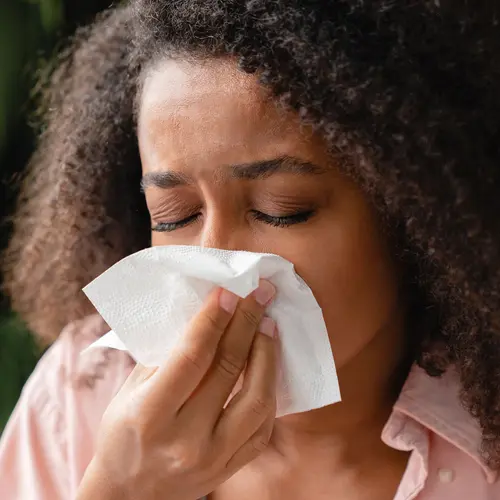Your doctor will ask you what allergens you might have come in contact with. They’ll also ask for your personal and family medical history to figure out what’s causing your troubles.
They may run tests to rule out other health problems that might look like allergic reactions. They could ask you to keep track of potential triggers and your reactions for a week to help them diagnose you. After this, they’ll choose a testing method.
The most common test for respiratory, penicillin, insect sting, skin, and food allergies is a skin prick or scratch test. The doctor scratches a small amount of the allergen into your skin and watches for swelling, itchiness, and redness in that area. Other tests look for signs in the blood that are linked to allergies.
Results can differ from one test or one lab to another. Your doctor can help figure out which tests are best for you and help you understand what the results mean.
How Are Allergies Treated?
The best option is avoiding the things that trigger your symptoms in the first place, but that isn’t always easy.
Nasal steroids, which you can get over the counter or by prescription, are often the first drug recommended for nasal allergies (hay fever). Your doctor might prescribe anti-inflammatory steroid drugs, like prednisone, for severe symptoms.
Antihistamines, which you can get over the counter, block the effects of chemicals your body makes that cause the allergic reactions.
An epinephrine shot is for an emergency, when an allergic reaction becomes life-threatening. It works quickly to bring up low blood pressure and open narrowed airways.
Allergy shots -- also called immunotherapy or allergy desensitization therapy -- may help ease attacks. You’ll get small amounts of things that trigger your symptoms, like pollen. They'll help your body get used to that allergen. It may take a year before they really start to work.
What Works Best for Specific Allergies?
Skin conditions: Atopic and contact dermatitis can be treated with a variety of anti-inflammatory steroids. You can put them on your skin or take them by mouth. Mild cases of hives may not need treatment. But moderate to severe cases require antihistamines or steroid pills. Stomach medicines that have some antihistamine effect, like cimetidine (Tagamet) or famotidine (Pepcid AC), may also help. Angioedema, a swelling of the mouth, face, and lips that sometimes comes with them, is almost always treated. It can be life-threatening.
Respiratory allergies: Doctors treat allergic rhinitis, or hay fever, with corticosteroid nasal sprays or antihistamines. They work well over the long term, but you have to take them regularly. You can get three kinds -- budesonide (Rhinocort), fluticasone, and triamcinolone (Nasacort)-- over the counter.
Over-the-counter antihistamines such as cetirizine (Zyrtec), fexofenadine (Allegra), and loratadine (Claritin) can help. You can also take a once-a-day med called a leukotriene receptor antagonist.
Allergy shots work well after the first year for inhaled allergens like pollen, trees, grasses, and molds. Another treatment that gives you a bit of the allergen is available in tablets or drops that you place under your tongue.
Food allergies: Your best bet is to stay away from the problem food. If your reaction is mild -- the food makes you itch or makes your eyes water -- antihistamines or topical creams might be all you need. If you’re highly allergic and likely to go into anaphylactic shock, your doctor will prescribe an emergency kit and show you how to use it. Keep two with you at all times. They contain a preloaded epinephrine shot. If you think you're having an emergency, don’t wait to take it. Give the shot, then call 911.
Drug allergies: If you’re allergic to medications, wear a MedicAlert bracelet. Always discuss this allergy with doctors when they give you a new prescription. Some skin rashes caused by drug allergies respond to antihistamines. Others require steroids you take by mouth or rub onto your skin. An allergy specialist can help you get used to some antibiotics.
Insect sting allergies: Again, the best thing is to try to avoid getting stung. But allergy shots can make a reaction less severe. If you’re highly allergic and anaphylaxis is a possibility, your doctor will prescribe an emergency kit with an epinephrine shot. Carry two with you at all times if your doctor prescribes them. Use one in case of an emergency, then call 911.
